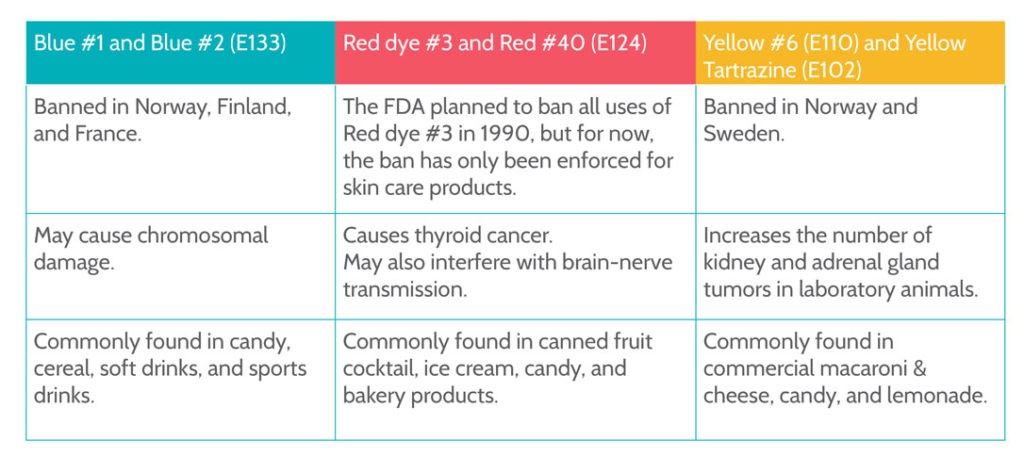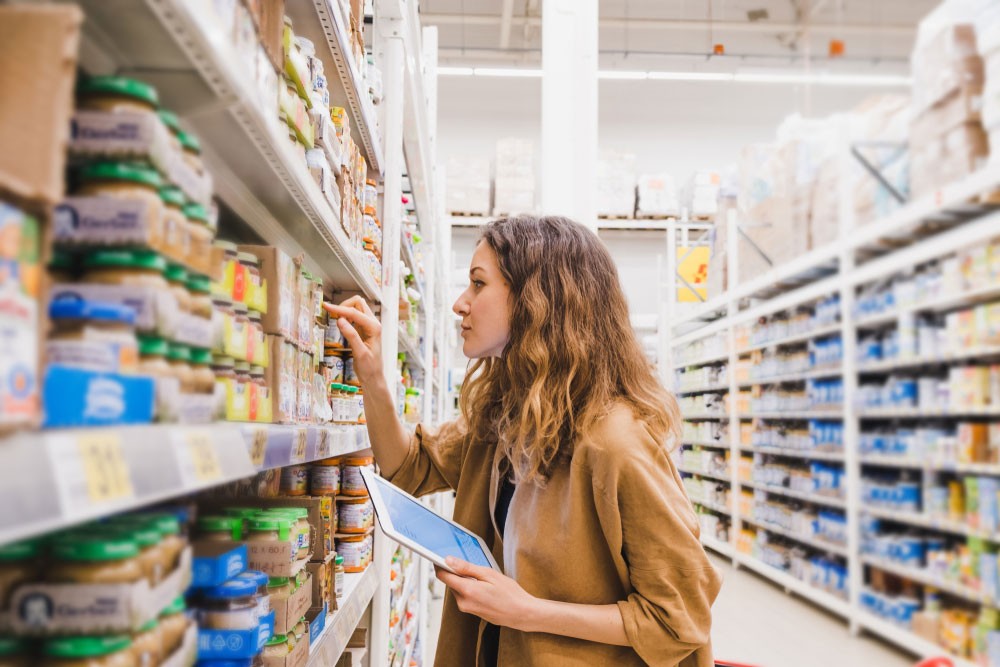These days, food packages often include catchy messages such as “gluten-free”, “no MSG”, “no added sugar”, or “light”.
Does that make them healthy though? This depends on the other ingredients, especially any preservatives and additives.
Preservatives are added to packaged foods to lengthen their shelf life, while additives are added to enhance flavor and appearance.
Euromonitor International analyzed data from 54 countries and reported that the most developed countries now consume more calories from packaged foods than from fresh foods. A logical conclusion, therefore, would be that this trend also led to an increased intake of preservatives additives.
How healthy are these substances? Is there a chance that they preserve food at the expense of our health?
In many cases, yes! This makes it important for us to carefully read the food labels of packaged foods. Here are the main preservatives and additives to watch out for and avoid:
Common Food Dyes

Sodium nitrite (NaNO2)
Have you ever wondered how processed meats get their reddish-pink color? It’s thanks to preservative Sodium nitrite which boosts this color and protects against the growth of harmful bacteria.
This preservative is linked to cancer, diabetes, and Alzheimer’s disease. According to the World Health Organization, processed meats are classified as “carcinogenic to humans”, partly due to their Sodium nitrite content.
Commonly found in hotdogs, bacon, ham, corned beef, any other type of processed meat as well as in smoked fish.
Artificial Sweeteners
Aspartame (E951) is often found in food labeled “sugar-free” and is surrounded by much controversy. Anti-aspartame activists link it to cancer, Alzheimer’s, multiple sclerosis, headaches, depression, seizures and a number of other ailments.
As for Acesulfame-K, a relatively new artificial sweetener, it has been linked to kidney tumors and cancers.
These two are often found in diet/sugar-free sodas, gelatins, breath mints, gum, iced tea, and chewable vitamins.
MSG (E621)
More than 40 forms of this additive can be found in the products we regularly consume (monosodium glutamate, sodium caseinate, autolyzed yeast, autolyzed vegetable protein, etc.). In all of its different forms, MSG is claimed to cause chemically induced obesity, type 2 diabetes, asthma, headaches, and even brain damage.
MSG is found in canned soup, diet beverages, popular fast food, frankfurters, instant soups, and some packaged vegetarian foods.
Artificial Trans Fats
Artificial trans fats (look for “partially hydrogenated oils” on the food label) are used to enhance the taste and texture of foods.
Trans fats are linked to higher bad (LDL) cholesterol levels and lower good (HDL) cholesterol levels, increased risk of stroke, as well as increased risks of developing heart disease and type 2 diabetes.
The US Food and Drug Administration has declared that artificial trans fats are no longer “generally regarded as safe” and many countries are in the process of implementing legislation to limit or ban the use of industrially produced trans fats or have already done so.
Margarine, chips and crackers, and fast foods most commonly contain trans fats.
Many commonly available packaged food products promoted with misleading marketing messages. A number may actually threaten our health.
In response to greater consumer awareness and growing evidence of the harmful effects of certain preservatives and additives, the food industry is now investigating the possible use of plant extracts as natural preservatives.
In the meantime, pay attention to what you add to your shopping cart by carefully reading the food labels and listed nutrition facts. A final tip: eat smart when dining out- consider the ingredients that may have been used to prepare your dish.

